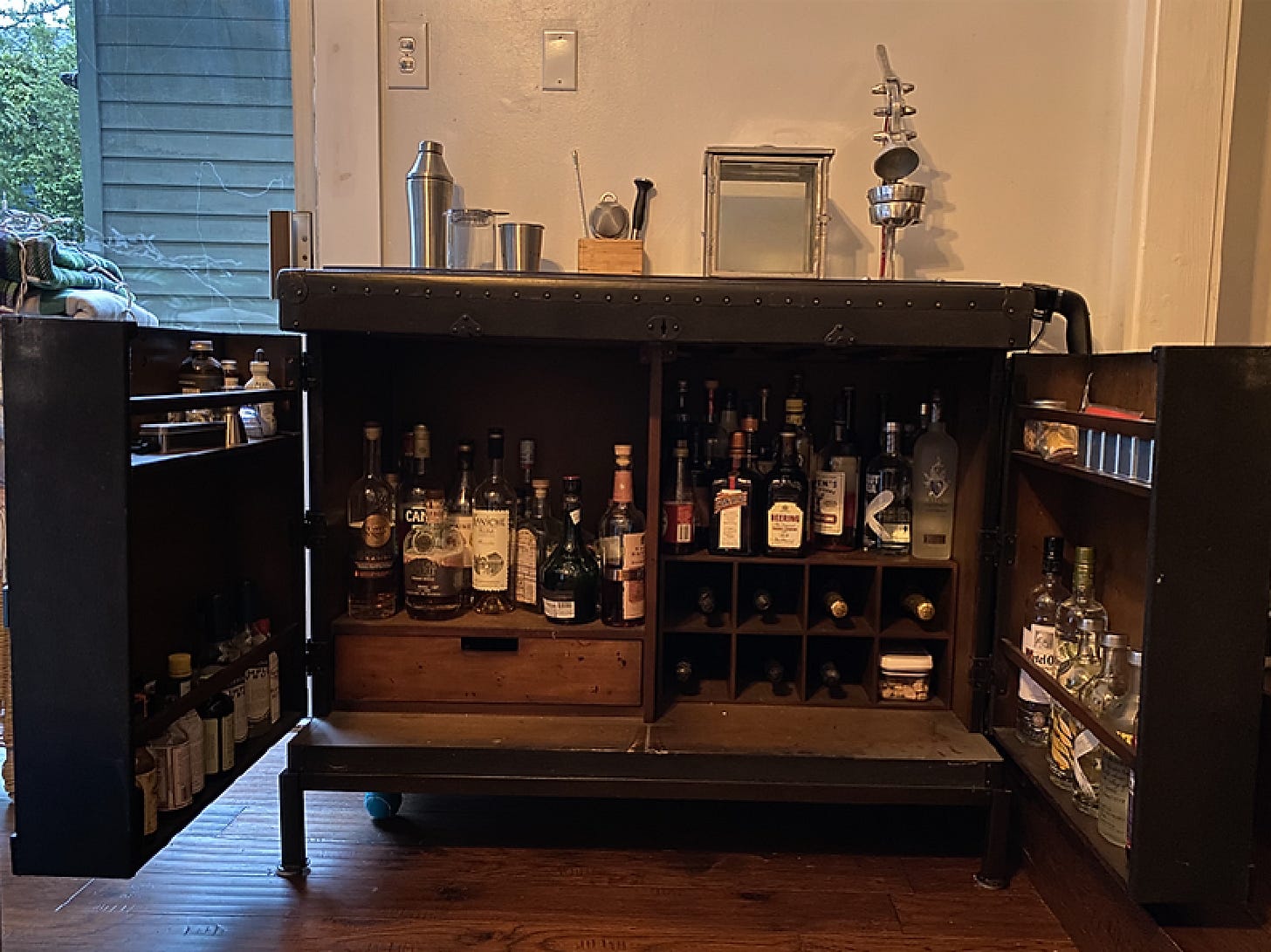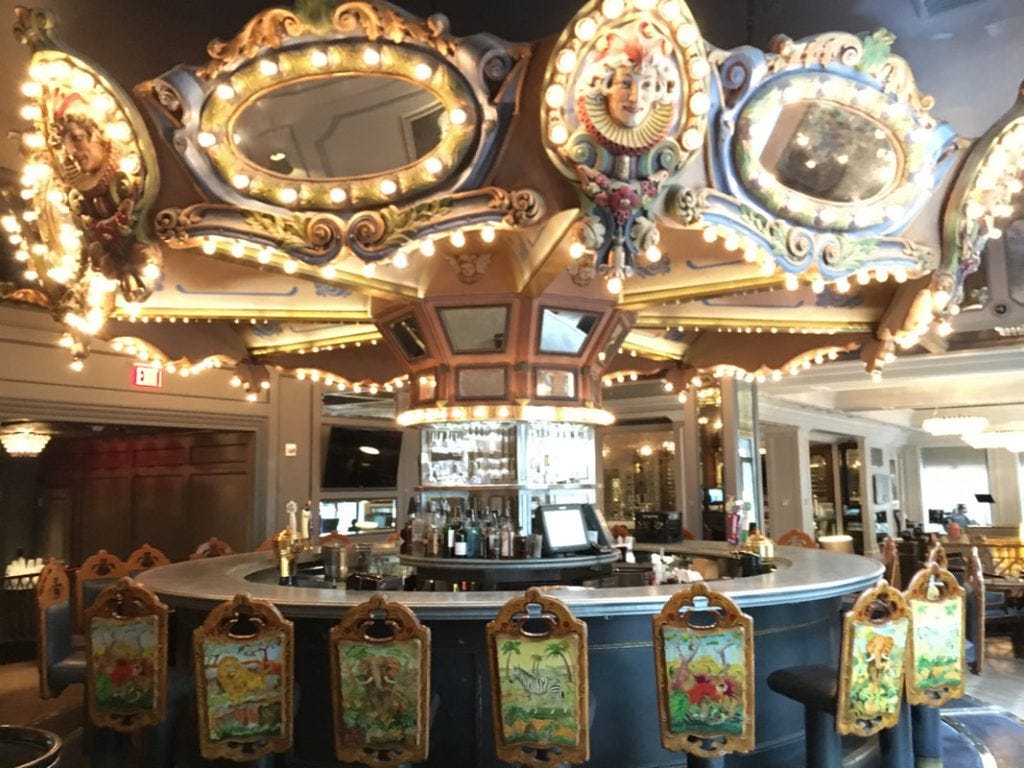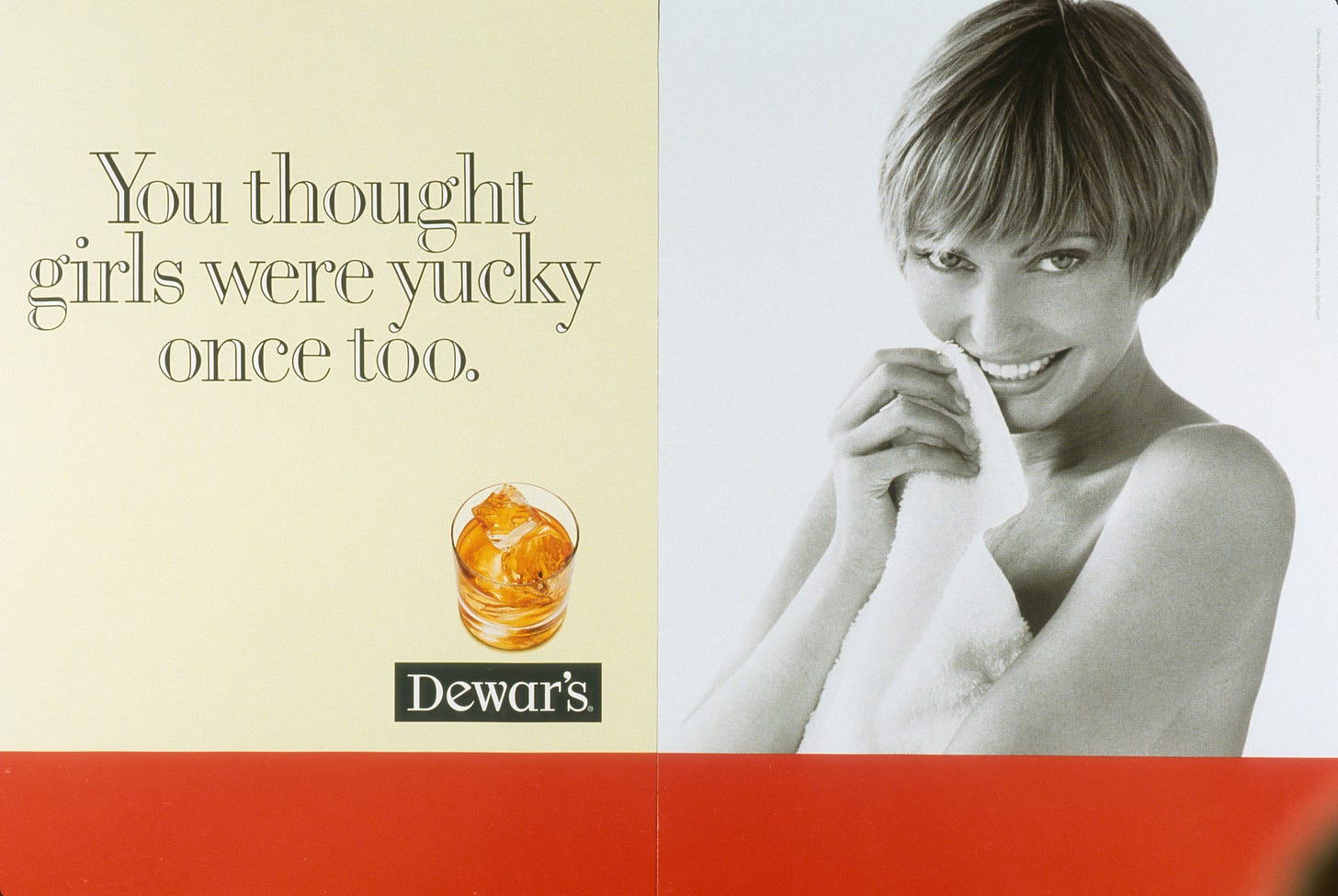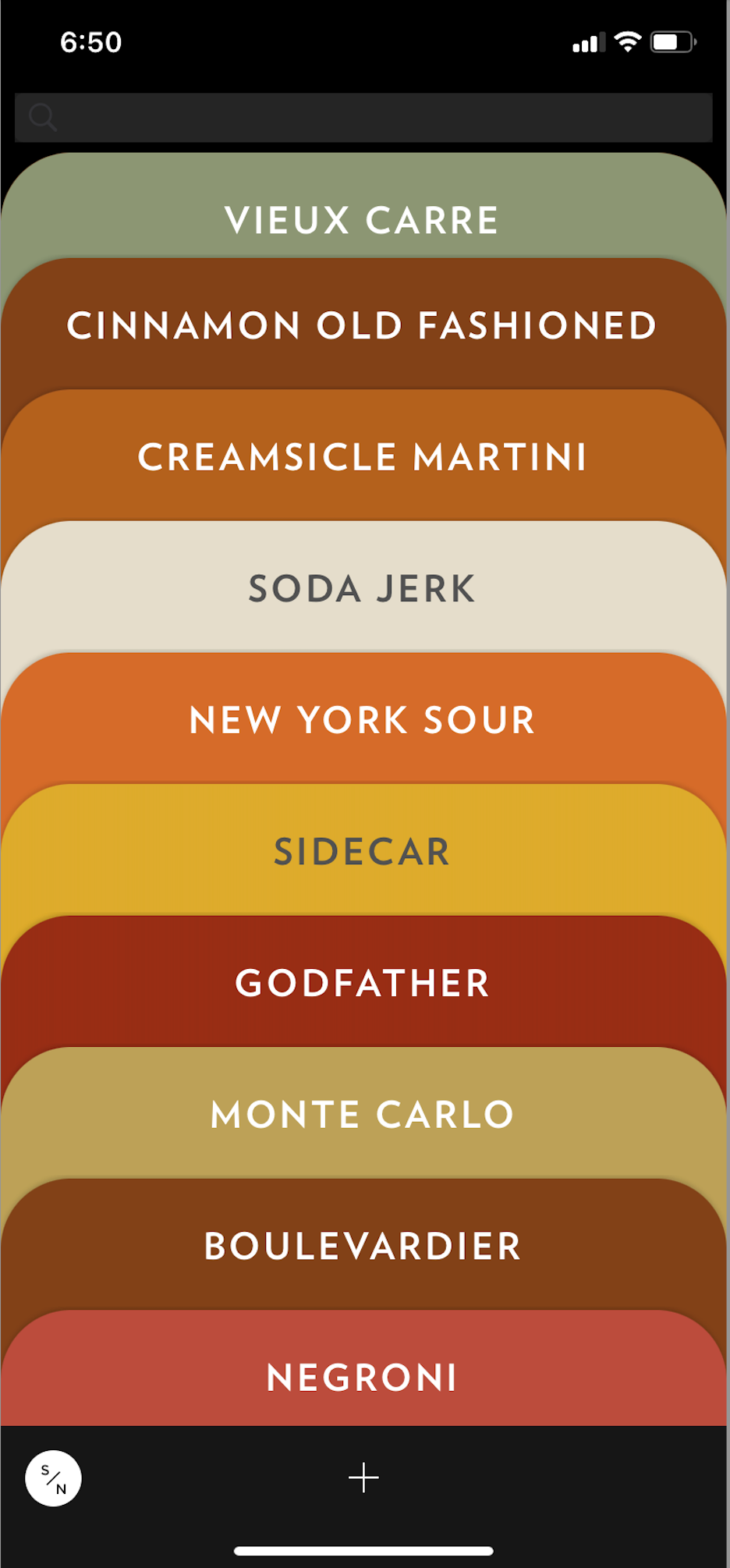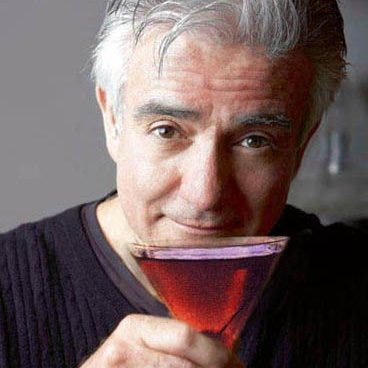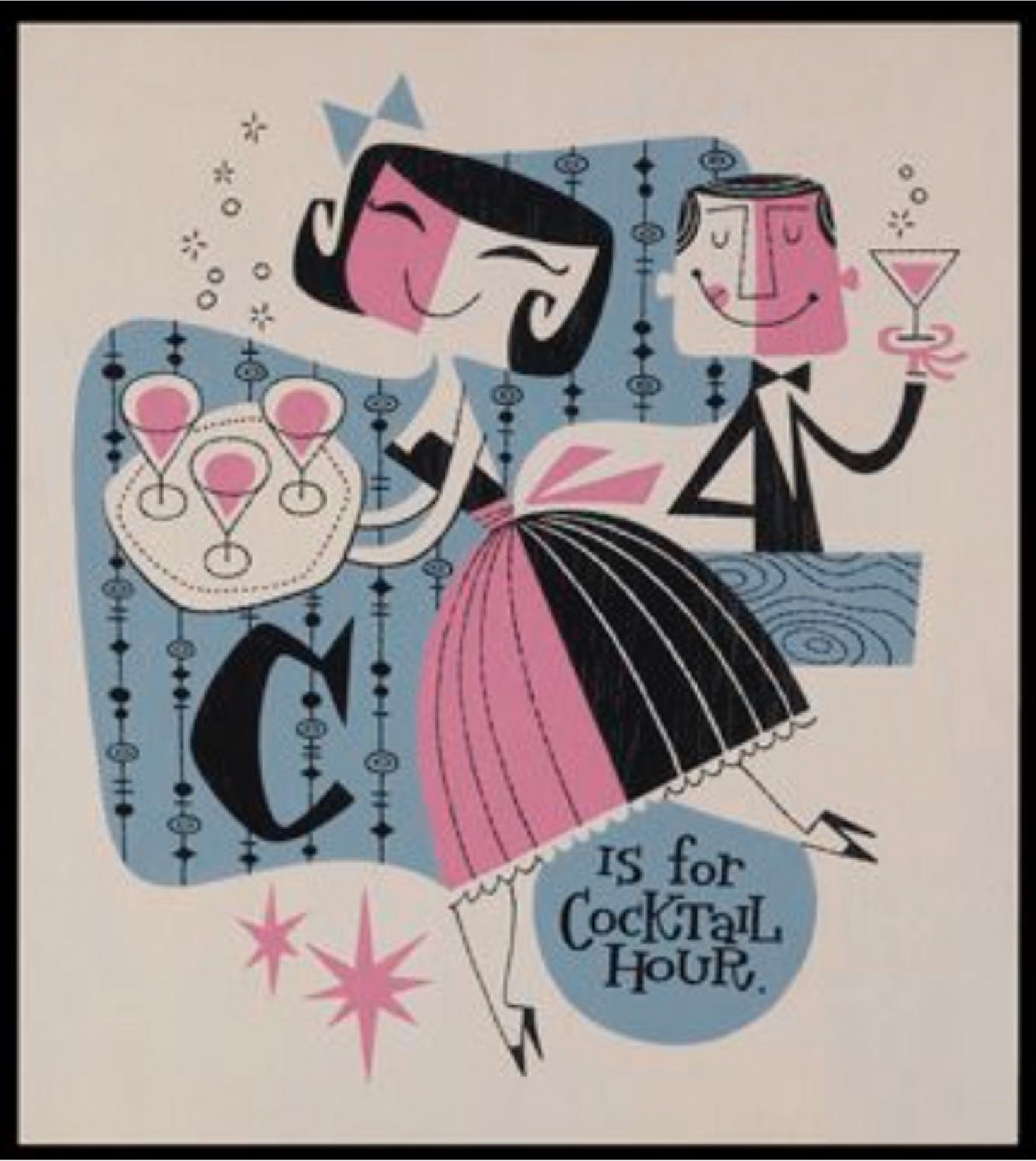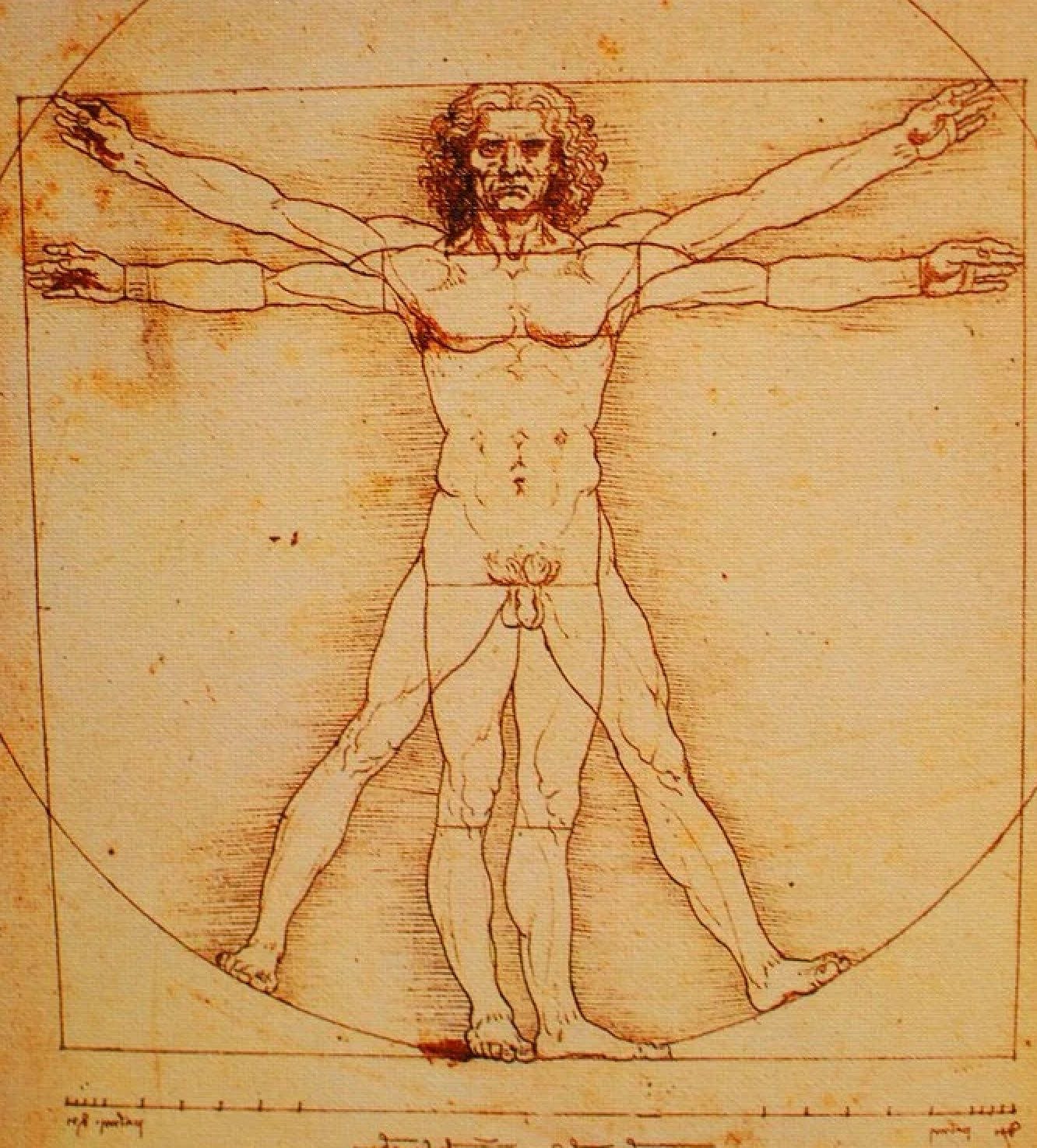Making craft cocktails is one of the admitted 8 things I’m geeky about. I don’t have an encyclopedic knowledge of how to make hundreds of drinks nor do I really want to acquire that. There are a dozen or so cocktails I make well without consulting a recipe. I’ve even invented several drinks that have tested well in my limited circles. Whatever skill I’ve acquired came organically with the help of books, websites, and YouTube videos.
My hobby began years ago with a Christmas gift from my wonderful wife: a coffee table book titled Death & Co. which tells the story of the NYC speakeasy with that name that opened on New Year’s Eve 2006. Founded by three guys, the bar gets its name from prohibition propaganda which claimed people who drink alcohol are “keeping company with death.” The book also features hundreds of drink recipes, including the very ones that got me started.
Interesting sidenote: Months later I discovered one of the three founders of Death & Co. is the brother of a friend of mine. Small world.
For me there is a meditative, almost Zen quality to standing at my vintage trunk bar (pictured) making a cocktail. I’m not much of a cook at all, but I imagine the feeling is similar for people who love preparing food. Making drinks is another facet of the same creative spirit that makes me an author. When I think about the time I’ve spent learning and practicing mixology, certain mantras have come to light. And they’re not just about booze.
So here are a dozen bits of life wisdom that mixology has taught me. Like a twelve-step program. (Get it?) Yes, I learned many of them before making – or even legally drinking – cocktails, but the hobby, combined with my adult, introspective nature has me paying closer attention to most things. This list very much included.
Try new things.
It’s so easy to not do this, especially as you get older. I can browse a liquor store the same way my wife and daughter browse Nordstrom or Urban Outfitters. Cool bottles, interesting label design, liqueurs with unexpected flavors, it’s all very interesting to me, and the hunt fosters the push to discover new things. Whether it’s finding a particular bottle discussed in a tutorial video, or coming across something that might perhaps, maybe, probably go with something in my repertoire, the exploration and experimentation are a big part of the enjoyment for me.
Years ago I was telling an old friend about my cocktail hobby, and he said he recently came across a drink that became a fast favorite: the Vieux Carré. I learned its cool history. It was invented in the 1930s at the Hotel Monteleone in New Orleans, a landmark that boasts a revolving carousel bar (pictured). Having the drink there is on my bucket list. Crafted from six different bottles, the Vieux Carré has become my signature that I make for friends upon request.
Tastes evolve.
I didn’t start drinking coffee until grad school. My joke up until then was: “I don’t drink coffee. It keeps me up all day.” Hilarious, I know. At that same time I started drinking scotch. (The circa 1993 ad that hooked me pictured. Sorry not sorry.) Had I known more and tried more, I probably would have switched to bourbon much sooner than I did.
Anyone who tells you they loved their first sip of beer is lying. We all know what acquired taste is, and the cocktail world is a great forum to push the envelope and see what you can learn to like. A good example for me is the Negroni. Equal parts Gin, Sweet Vermouth, and Campari, this classic is known for its perfect balance of the three ingredients. But … Campari, an Italian liqueur, is quite bitter. For me, it overwhelms the drink, so I adjust the cut to a more “imperfect” balance, making a drink I really enjoy. Over time I’ve moved closer to 1:1:1 becauseI am acquiring the taste.
Share what you know.
One of the coolest things is when you blow away a friend with a drink they’ve never had or even heard of. Whenever my wife hosts her book club, I put together a little cocktail menu and serve. The drinks are always a big hit. One woman who didn’t want to finish her espresso martini before driving actually took it home in what I found to be an adequate to-go cup. (She did not get pulled over.)
I have another friend with a serious sweet tooth who drinks only fruity, sugary cocktails. But I got him to like a whiskey drink I invented called Monkey Business which features banana and chocolate overtones. Likewise, if someone wants a gin and tonic and is willing to try something new, I’ll make them my cut-down version of the Negroni to broaden their appreciation of gin.
Manual dexterity is a worthwhile achievement.
I’m not flipping bottles behind my back or anything like that. The truth is, the location of our home bar is such that I’m rarely watched while making drinks for friends. As a result, showmanship is not on the table. Or bar, whatever.
There is technique, however, to the stir, pour, and shake. Especially the shake. You might feel silly, but if you don’t include some vigor with your shaker, you are just mixing the drink and not aerating the drink. The second part is crucial, trust me. I’m no surgeon, but the ongoing practice has helped make me more confident with my hands.
Exercise your memory.
When making a drink I first think what I believe to be the ingredients and amounts. Like a little, internal self test. Many times if it’s one of my standards, there is no question, but if I’m branching out a bit, it’s important to me that I see if I can remember the recipe. The one that just popped into my head as I’m writing this is the Tequila Sunrise, which is a decent challenge because I don’t drink tequila (but a guest might).
I don’t know the amounts or ratio, but I know it’s Tequila and orange juice. For “red” I first thought cranberry juice, but knew immediately that wasn’t right. The two juices would mix vs. staying separate, a key aspect of the drink if you’ve seen one. The next guess for red would be grenadine, which I’m pretty sure is correct. I’ll look it up so that the recipe included below is correct.
The importance of exercising your memory and all your cognitive functions is prettyobvious. It’s why we play wordle, right? But like a lot of helpful, healthy things, we know but we don’t always do.
Download the app.
To help with making drinks I use a free app called Highball, in which you input drink recipes on separate “cards” that you canthumb through and call up from an easy, user-friendly “tab” interface (pictured). I often check the app even when I’m fairly confident of a recipe because seeing it again is validation and another impression helping the overall memory.
This bit of advice is really just a specific example of a wider call to embrace technology. Gen X (that’s me) is unique in that we are the only generation with major parts of our lives before and after the internet. We’ve had both. When our parents told us about what it was like back in their day, it wasn’t that hard to fathom. My kids listening to me on that topic? They get it, but it’s all unimaginably foreign to them.
Take hosting seriously.
The vast majority of drinks I make are just for me, one and done, but making drinks for friends suits my personality. It’s creative, appreciated, and it allows me to bring joy to others without needing to be the center of attention. I’m the kind of host who wants to know that everyone is taken care of. Providing the drinks is a good marker for that.
Embrace the experts.
We are constantly inundated with people’s opinions on things. Expertise. A word that has sadly lost not its meaning, but certainly its resonance. If you’re a Gen Xer like me or close to it, imagine decades ago seeing an expert on TV and questioning whether or not the title was true. Now imagine coming across an expert on TV or on social media today and not questioning the validity of the expert claim. And even if you believe it, you immediately know there are millions of people who don’t. With the connecting of our digital world, “expert” has become the new “genius.”
I’ll make it easy for you. I’m not an expert mixologist. Not even close.
I started listening to a podcast with a great title: Life Behind Bars. (Seriously, how good is that?) I couldn’t get into it, though. The hosts seemed cool enough, but it’s one of those shows where you feel like you’re eavesdropping on a conversation at the next table over in a restaurant. They crack each other up and give opinions about obscure spirits. Not for me.
I also took a Masterclass in mixology which I found very disappointing. Conducted by a man and woman who are certainly knowledgeable and allegedly famous in their field, the class was more about them flexing than teaching. I’m a former teacher (Preschool and college. Honest.) and I’m a very tough audience whenever I assume the role of student. They would sort of go through the process of a drink you might make, then focus on some crazy concoction you never would. Let the elderberry syrup simmer in the saucepan for a good twenty minutes. … What???
So who is an expert I’ve embraced? Top of the list is a guy named Dale DeGroff (pictured), who I first saw in a tutorial video making a Vieux Carré. I've watched his other videos and bought his book. Definitely someone I would have a drink with. Also in that camp is Anders Erickson, whose YouTube channel I subscribe to.
Don’t cut corners.
The cocktail angle of this advice is primarily about tools. Amateur chefs would never operate with cheap knives or pots, so just like them, I made the modest investment to acquire real tools: barspoon, mixing glass, jigger, shaker, muddler, all of it. I even have a glass box smoker I got from Williams-Sonoma. Talk about a conversation piece.
The last tool I purchased was an upgrade from the plastic, hand-held juicer to the vintage metal contraption that now sits onthe bar next to the smoker (pictured). The juicer segues into the next corner that should never be cut: juice. Bottles of lemon and lime juice are a no-no. Buy your fruit and squeeze it yourself. It’s an easy party-prep step, and leftover juice will last in your fridge for up to three days. (Just throw another party.)
Glassware and ice are key, too. Getting nice glasses and knowing what drink goes in what glass is all part of the deal. Lastly, better ice makes a better drink. Consider using molds that make a large cube or sphere (not for every drink, but handy!)
Learn sophistication without pretension.
There is an inherent refinement to hosting a cocktail party. If you use that phrase in your invitation, people soon think about what they might wear, and the options are always a notch above the everyday.
I can always answer the “what’s in this?” cocktail question, and sometimes I can add the drink’s history or the meaning behind its name. I like knowing stuff like that, and I’ve been told that my enthusiasm relaying those stories shows I’m equally fond of sharing it. I don't know if that makes me "sophisticated," but as a writer, I tell stories efficiently, and my audiences are rarely confused, bored, or feel like they’re being talked down to.
Quality always beats quantity.
Of all the ideas discussed here, this one has the strongest “goes without saying” vibe. For cocktails, the equation works out pretty well because giving up quantity (meaning no longer drinking to get drunk) allows for higher quality spirits. If you drink too much cheap vodka, you’re most likely spending more over time, so it’s possible that the quality route can be frugal, too.
Appreciate how often science and art meet.
I don’t know when this practice started for me. Possibly as far back as grade school. There was always something off-putting to me about science and art being casually billed as opposites. They’re just not.
So much creativity goes into scientific thinking, and art involves choices and decisions made through a process that can be seen as scientific. Even artistic choices made impulsively or instinctually are irrefutably tied to psychology and probably even biology.
My son is an art student graduating from college soon. He creates 3D animation using the software called Blender. Not sure if there’s science involved? See how far you get in his YouTube tutorial for intermediate users.


